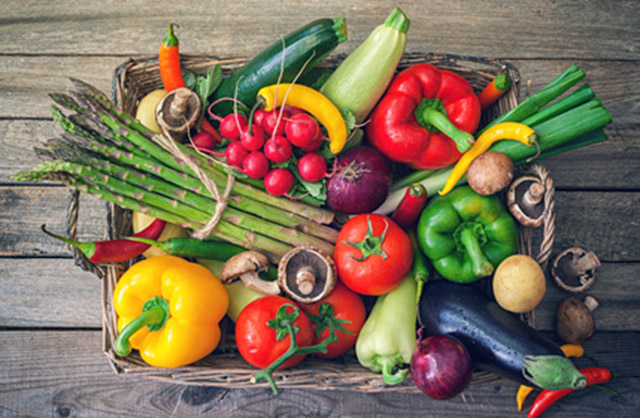Harvard University urges consumers to eat organic in a report that was commissioned by the European parliament.
While European and U.S. health officials stand by their argument that pesticides used on food are safe for human consumption, the limits were based on animal studies and not human.
Studies that helped set pesticide limits also only tested one pesticide at a time, rather than the combined effects of multiple pesticides.
The Harvard researchers noted why that is a problem in their report:
“The human brain is so much more complex than the rat brain, and our brain development is much more vulnerable because there are so many processes that have to happen at the right time and in the right sequence — you can’t go back and do them over.”
A following report made light of the dangers of using antibiotics on animal farms:
“The prevalent use of antibiotics in conventional animal production is a key driver of antibiotic resistance. The prevention of animal disease and more restrictive use of antibiotics, as practiced in organic production, could minimize this risk, with potentially considerable benefits for public health.”
So why should you eat organic instead of conventional? Let’s take a look at some evidence.
Less exposure to pesticides
First of all, organic foods reduce exposure to pesticides. A new study from Boise State University showed that organic foods significantly reduce pesticide exposure.
“For most Americans, diet is the primary source of OP pesticide exposure,” explained Cynthia Curl, the lead author in the study. “The study suggests that by eating organically grown versions of those foods highest in pesticide residues, we can make a measurable difference in the levels of pesticides in our bodies.”
More nutrition
Organic foods also typically contain a higher concentration of vitamins and minerals.
A 2010 study published in PLOS One showed that organic strawberries contained more nutrients than conventional strawberries.
According to an article from Mother Earth News, organic free-range eggs are more nutritionally rich when compared to commercial eggs. They contain about two-thirds more vitamin A, two times more omega-3, three times more vitamin E, and seven times more beta-carotene.
What about grass-fed meats?
There is also a growing body of research on the benefits of grass-fed meats versus conventionally grown meat.
The latest research from Cambridge Journals stated the following about grass-fed meat and milk:
. Both organic milk and meat contain around 50% more beneficial omega-3 fatty acids than conventionally produced products
. Organic meat had slightly lower concentrations of two saturated fats (myristic and palmitic acid) that are linked to an increased risk of cardiovascular disease
. Organic milk contains 40% more conjugated linoleic acid (CLA)
. Organic milk contains slightly higher concentrations of iron, Vitamin E and some carotenoids
. Conventional milk contained 74% more of the essential mineral iodine and slightly more selenium
Note: None of the information in our website is intended to diagnose, treat, cure or prevent any illness or disease. The content on our website is for educational purposes only.
DON’T FORGET to sign up for our weekly newsletter to get our latest articles, updates, free recipes and giveaways.
Are grass-fed and organic foods really worth it?
Organic foods reduce exposure to pesticides.
For top 10 foods you must eat organic.
REFERENCES:
1. “Study Helps Predict Pesticide Exposure in Diet.” Boise State University. Boise State University, 05 Feb. 2015. Web. 12 Mar. 2017.
2. “Fruit and Soil Quality of Organic and Conventional Strawberry Agroecosystems.” PLOS ONE. PLOS ONE, n.d. Web. 12 Mar. 2017.
3. “Meet Real Free-Range Eggs.” Mother Earth News. N.p., n.d. Web. 12 Mar. 2017.
4. “New Study Finds Clears Differences between Organic and Non-organic Milk and Meat.” Cambridge Journals Blog. N.p., n.d. Web. 12 Mar. 2017.
5. “Harvard Urges Eating Organic.” Mercola.com. Mercola.com, n.d. Web. 13 Mar. 2017.
6. “Health Benefits of Organic Food, Farming Outlined in New Report.” Harvard T.H. Chan School of Public Health. Harvard T.H. Chan School of Public Health, 21 Feb. 2017. Web. 13 Mar. 2017.

















